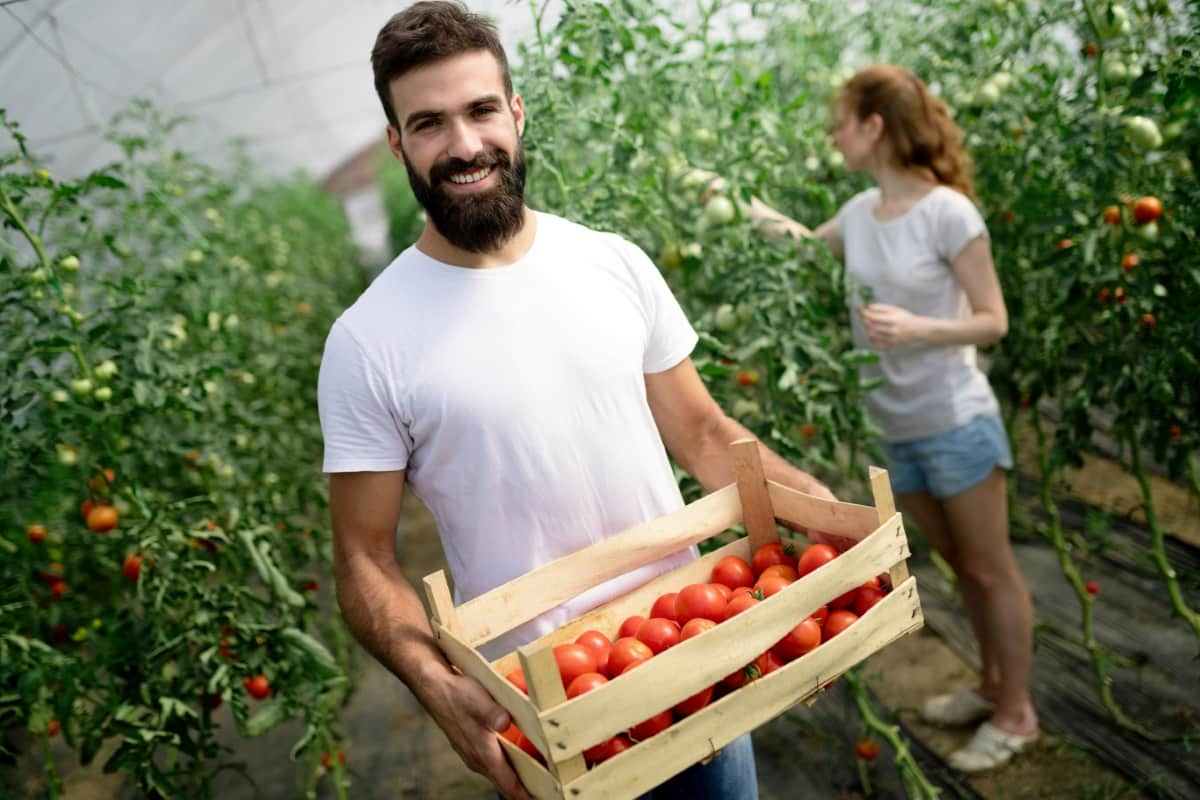Contract farming has garnered increased attention recently as a potential avenue for integrating small-scale farmers into emerging high-value markets. In Indian agriculture, contract farming is a formal agreement between farmers and buyers, often agribusiness firms, for producing and supplying agricultural products under forward agreements. It involves agronomic, supply, and marketing support from the buying firm in return for an obligation from the farmer to supply produce as per agreed specifications.

Vegetable Contract Farming in India
Need for Vegetable Contract Farming in India
The need for vegetable contract farming in India has grown significantly due to several factors. Firstly, the growing demand for high-quality and diverse vegetables is driven by changing consumption patterns, urbanization, and increased income levels. This demand often requires a consistent supply of produce that meets quality and safety standards, which small-scale farmers find challenging to meet independently.
Contract farming allows for coordinated production that ensures consistent supply and compliance with quality standards. Secondly, the changing global trade dynamics have increased the demand for traceability in agricultural produce. Understanding the product’s origin and production conditions is crucial for global trade and food safety rules.
Contract farming effectively ensures traceability since the firms involved have direct control over the production process. Thirdly, Indian farmers face multiple production and marketing risks that make their income unstable. The price fluctuations in the vegetable market can lead to significant losses for farmers. Contract farming provides a degree of certainty to farmers by offering predetermined prices.
Lastly, contract farming can also contribute to technology transfer and capacity building of farmers. Many agribusiness firms provide training, technical advice, and inputs to farmers as part of the contract, helping them to improve their farming practices, increase yields, and enhance product quality.
Crops under Contract Farming in India
In India, a diverse range of crops are under contract farming. These crops primarily include vegetables, fruits, and some cash crops. The most common vegetables under contract farming are potatoes, tomatoes, green peas, chilies, and gherkins. Some leading companies involved in vegetable contract farming in India include PepsiCo India for potatoes, Bharti Walmart for various vegetables, and HUL for gherkins.
Potato contract farming, led by PepsiCo India, is perhaps one of the most well-known examples. PepsiCo entered into contract farming arrangements with farmers in Punjab, Gujarat, and West Bengal, among others, for the production of processing-grade potatoes used in their popular snack food lines. The arrangement provided farmers with high-quality seed, technical guidance, and a guaranteed buyback at predetermined prices, reducing their risk and increasing their income potential.
Tomato contract farming is another significant area. Companies like Bharti Walmart have initiated tomato contract farming to ensure a consistent supply of high-quality tomatoes for their retail outlets. They have provided farmers with advanced hybrid seeds, training on modern farming techniques, and a promise of buyback at agreed prices, thereby promoting the adoption of improved practices and technologies among farmers. Another interesting case is gherkin contract farming, mainly driven by HUL and other export-oriented firms.
In case you missed it: The Rise of Dragon Fruit Contract Farming in India: A Game-Changer for Farmers

Gherkins, a type of small cucumber used for pickling, have a significant export market. These firms contract with farmers in states like Karnataka, Andhra Pradesh, and Tamil Nadu to produce gherkins under specific conditions to meet international market requirements.The firms provide farmers with seeds and technical advice and often oversee the production process to ensure quality and compliance with international standards. They also guarantee a buyback of the produce at predetermined prices, which reduces market uncertainties for the farmers.
Benefits and Challenges of Vegetable Contract Farming in India
Contract farming offers numerous benefits to both farmers and agribusiness firms. It provides farmers access to quality inputs, technical knowledge, and assured markets, leading to higher productivity, improved quality, and stable income. It also enables farmers to shift to high-value crops and diversify their production, which can lead to improved livelihoods. For agribusiness firms, contract farming offers a reliable supply of raw materials that meet their specific quality and safety standards.
Consistency in quality and safety is vital, especially for export-oriented and food-processing industries. Contract farming also facilitates traceability, which consumers and international trade regulations increasingly demand. However, despite its potential benefits, vegetable contract farming in India also faces several challenges. First and foremost is the power and information asymmetry between small-scale farmers and large agribusiness firms.
This can lead to exploitative contracts where farmers bear most of the risks. For instance, if the prices of vegetables increase in the open market beyond the contracted price, farmers could incur losses as they are obligated to sell at the contracted price. Similarly, if the quality of the produce does not meet the firm’s standards, the firm may reject the produce, leading to significant losses for the farmer.
The absence of strong laws for overseeing contract farming is another obstacle. While the Indian government has enacted the Farmers (Empowerment and Protection) Agreement on Price Assurance and Farm Services Act, 2020, to regulate contract farming, its implementation remains uneven, and many farmers are unaware of their rights and protections.
Further, contract enforcement can be problematic. In cases where firms fail to honor their commitments, such as not buying back the produce at agreed prices or quantities, farmers have limited recourse. Firms struggle to enforce contracts when farmers sell their produce at higher market prices instead of the agreed price.
Vegetable Contract Farming Companies in India
Several companies in India are involved in vegetable contract farming. Notable among these are PepsiCo India, which has been engaged in contract farming for potatoes in states like Punjab, Gujarat, and West Bengal. Bharti Walmart has also initiated contract farming for various vegetables, including tomatoes.
In case you missed it: Avocado Contract Farming in India

Other significant players include HUL (Hindustan Unilever Limited), primarily known for gherkin contract farming, and companies like FieldFresh Foods (a joint venture between Bharti Enterprises and Del Monte Pacific Limited), Mahindra Agribusiness, and ITC’s e-Choupal, which work with a variety of vegetables. These companies are instrumental in connecting farmers to high-value markets domestically and internationally.
Conclusion
Contract farming holds considerable potential for improving the livelihoods of small-scale vegetable farmers in India. It offers a pathway to integrate these farmers into high-value markets and modern supply chains, enhance their access to technology and inputs, and reduce their marketing risks.
- Feed Your Flock for Less: Top 10 Tips to Save on Chicken Feed
- Ultimate Guide to Ossabaw Island Hog: Breeding, Raising, Diet, and Care
- Hatching Answers: The Top 10 Reasons Your Chickens Aren’t Laying Eggs
- Eggs and Economics: Breaking Down the Cost of Raising Backyard Chickens
- Defend Your Greens: Proven Methods to Keep Iguanas Out of Your Garden
- Ultimate Guide to Cinnamon Queen Chicken: A Comprehensive Guide for Beginners
- Ultimate Guide to California Tan Chicken: Breeding, Raising, Diet, Egg-Production and Care
- Ultimate Guide to Marsh Daisy Chicken: Breeding, Raising, Diet, and Care
- 10 Types of Chicken Farming Businesses You Can Start for Profits